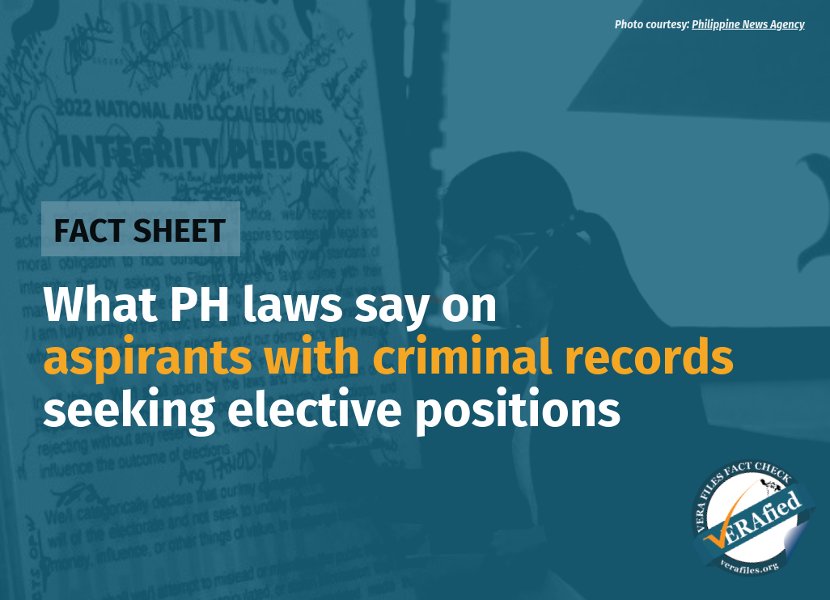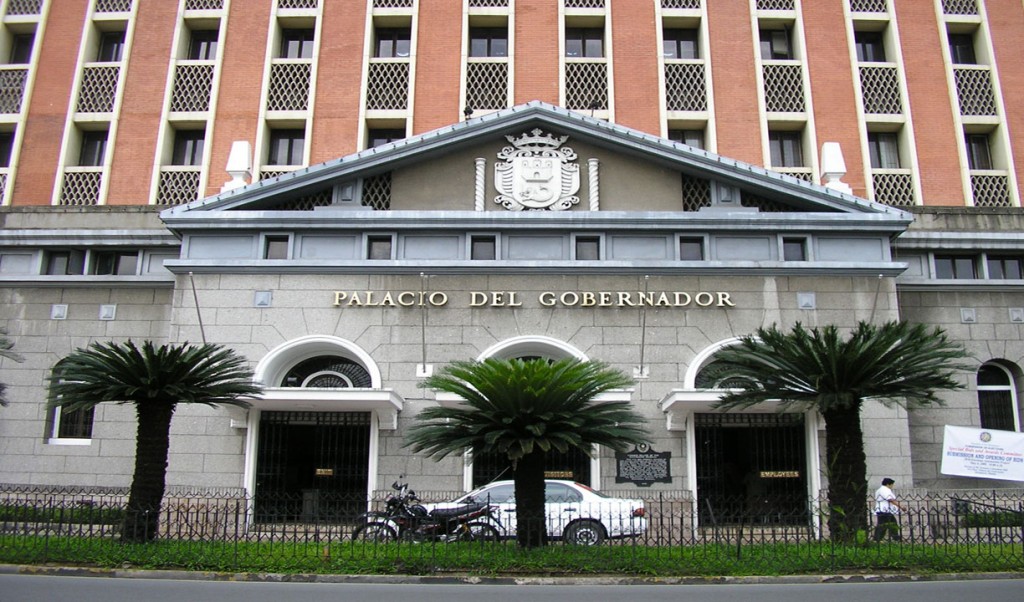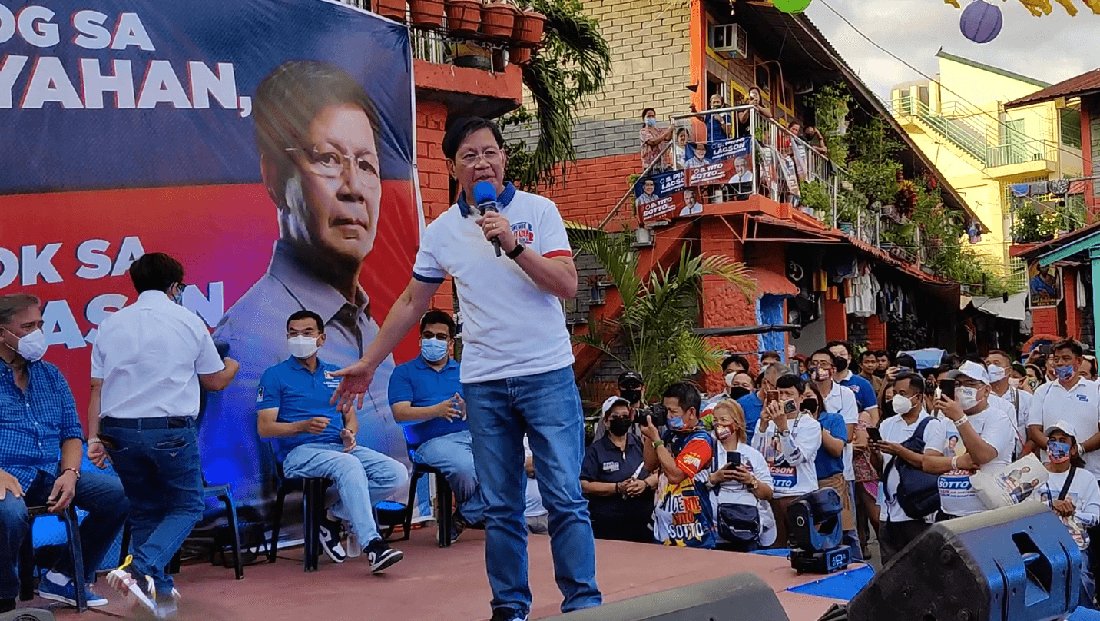Twenty-seven days after Ferdinand “Bongbong” Marcos Jr. filed his certificate of candidacy (COC) at the Commission on Elections (Comelec), a group of civic leaders asked the poll body to cancel it for making “material false representations” on his “alleged eligibility to run” for the presidency in the 2022 elections.
The petitioners, who consist of political detainees and human rights and medical groups that opposed the Marcos dictatorship, said Marcos Jr. is not eligible to run for any public office following his convictions for failure to file income tax returns for 1982 to 1985.
In 1995, a Quezon City Regional Trial Court sentenced Marcos Jr. to three years imprisonment and a fine of P30,000 for violating “beyond reasonable doubt” Sections 45 and 50 of the National Internal Revenue Code (NIRC).
But when Marcos Jr. filed his COC, he declared under oath that he has not “ever been found liable for any offense, which carries the accessory penalty of perpetual disqualification to hold public office.”
The petition also cited that in 1997, the Court of Appeals (CA) affirmed Marcos Jr.’s conviction under Section 45 of the Tax Code for not filing his income tax returns when he was vice governor of Ilocos Norte, the bailiwick of the Marcoses.
For these reasons, the petitioners — priest Christian B. Buenafe, Fides M. Lim, Ma. Edeliza P. Hernandez, Celia Lagman Sevilla, Roland C. Vibal, and Josephine Lascano — argued that the Comelec should cancel Marcos Jr.’s COC because he falsely represented his eligibility to run for public office despite his convictions in 1995 and 1997. (See Final decision to bar Bongbong Marcos in 2022 nat’l elections due to tax evasion is on SC — Carpio)
They added that under the Tax Code provision, Marcos Jr. must be perpetually disqualified from running and holding any public office, due to his tax-related convictions.
The former senator’s camp repeatedly dismissed the petition as “mere propaganda.” It also twisted a statement of Comelec spokesperson James Jimenez and made it appear that he said the petition to cancel Marcos Jr.’s COC had “no basis.” (See VERA FILES FACT CHECK: Marcos camp distorts Comelec spox’s statement on ‘disqualification’ petition)
The issue has raised questions on legal provisions regarding aspirants with criminal records who are seeking elective positions. Here are three things you need to know:
1. Can aspirants with criminal records still seek elective posts?
Persons with criminal records can still run for public office for as long as they have not been “sentenced by final judgment for subversion, insurrection, rebellion or for any offense for which one has been sentenced to a penalty of more than 18 months or for a crime involving moral turpitude, or has been given plenary pardon or granted amnesty,” based on the provision for disqualifications under Section 12 of the Omnibus Election Code.
On the other hand, the 1997 Tax Code permanently bars public officers or employees from participating in any election if they have committed tax-related crimes. Section 253(c) of the Tax Code states that on top of the imposition of the maximum penalty, the offenders:
“…shall be dismissed from the public service and perpetually disqualified from holding any public office, to vote and to participate in any election.”
Source: Bureau of Internal Revenue, National Internal Revenue Code (Sec. 253c), Accessed Nov. 9, 2021
2. How does the Supreme Court define crimes involving moral turpitude?
In 1993, the Supreme Court (SC) ruled that “moral turpitude is not involved in every criminal act.” However, it said “moral turpitude is somewhat a vague and indefinite term, the meaning of which must be left to the process of judicial inclusion or exclusion as the cases are reached.”
In 1959, the SC adopted the Black’s Law Dictionary’s definition of moral turpitude that says:
“[Moral turpitude is] an act of baseness, vileness, or depravity in the private duties which a man owes his fellow men, or to society in general, contrary to the accepted and customary rule of right and duty between man and woman, or conduct contrary to justice, honesty, modesty, or good morals.”
Source: Chan Robles Virtual Law Library, Supreme Court of the Philippines (Tak Ng vs. Republic of the Philippines), Dec. 23, 1959; The Lawphil Project, G.R. No. L-13017, Dec. 23, 1959
In 2009, the SC, ruling on a case on whether or not the surviving heirs of the late Marcos Sr., including Marcos Jr., are qualified as executors of the deposed leader’s will, the magistrates held that the younger Marcos’ failure to file income tax returns from 1982 to 1985 is “not a crime involving moral turpitude.”
But in the same case, the high court held that crimes with an element of fraud, such as embezzlement, robbery, and swindling, are considered acts involving moral turpitude.
As early as 1920, the SC has categorized crimes involving moral turpitude:
3. Have there been cases in which the SC affirmed the disqualification of candidates for crimes involving moral turpitude?
A cursory search on the issue showed that in the last 20 years, the Supreme Court has affirmed the disqualification of a candidate for a crime involving moral turpitude.
In 2001, Pablo Villaber, then eyeing a seat in the House of Representatives for Davao del Sur, asked the High Court to nullify Comelec’s orders to disqualify him as a candidate and cancel his COC, saying the poll body committed “grave abuse of discretion.”
In disqualifying Villaber, the Comelec cited a Manila Regional Trial Court order for his conviction, finding him guilty for issuing a check for P100,000 that bounced.
The trial court sentenced Villaber to one-year imprisonment for violation of Batas Pambansa Blg. 22, or the anti-bouncing check law. But Villaber argued in the SC that his conviction has not become final and executory, citing that while the Court of Appeals had affirmed the trial court’s conviction, the decision was not remanded to the trial court for promulgation. Even if it was, he said the case does not involve moral turpitude.
But the SC affirmed Comelec’s decision to disqualify Villlaber and, in so doing, emphasized that the deletion of a prison sentence for such offense does not mean that the crime no longer involves moral turpitude.
In a later case, the high court reversed the disqualification of a candidate despite a court’s decision that found him guilty of a crime.
In 2009, the Supreme Court reversed Comelec’s order to disqualify Edgar Teves, who ran and lost as representative of Negros Oriental’s third district in the 2007 midterm elections.
The Comelec disqualified Teves owing to his conviction at the Sandiganbayan, which found him guilty for violating the Anti-Graft and Corruption Act and the Local Government Code, a crime that the poll body believed to have involved moral turpitude.
In 2004, the Sandiganbayan indicted Teves for having financial interest in a cockpit that he owned and managed since he was mayor of Valencia, a municipality in Negros Oriental.
The SC ruled in 2009 that not all crimes involve moral turpitude, such as having a financial interest in a cockpit, even if Philippine laws prohibit such acts.
Have you seen any dubious claims, photos, memes, or online posts that you want us to verify? Fill out this reader request form.
Sources
ABS-CBN News, Comelec urged to cancel Marcos Jr.’s presidential bid over tax evasion conviction, Nov. 2, 2021
Inquirer.net, Petition to cancel COC of Bongbong Marcos filed before Comelec, Nov. 2, 2021
CNN Philippines, Petition vs. Bongbong Marcos’ presidential bid filed before Comelec, Nov. 2, 2021
Comelec Petitioners, Fr. Buenafe Et Al v. Marcos Jr. PTN For Cancellation of COC, Nov. 2, 2021
Court of Appeals, People v. Marcos Jr. CA G.R. CR No. 18569, Oct. 31, 1997
Official Gazette of the Philippines, Omnibus Election Code of the Philippines (Sec. 12), Dec. 3, 1985
ABS-CBN News, Marcos Jr.’s camp says disqualification petition a ‘predictable nuisance’, Nov. 3, 2021
CNN Philippines, Marcos camp calls petition to cancel his candidacy a ‘nuisance’ plea, Nov. 3, 2021
Inquirer.net, ‘Propaganda’: Marcos camp dismisses ‘predictable nuisance’ disqualification case, Nov. 3, 2021
Can aspirants with criminal records still seek elective posts?
- Bureau of Internal Revenue (BIR), National Internal Revenue Code of 1997, Accessed Nov. 9, 2021
- Bureau of Internal Revenue, National Internal Revenue Code (Sec. 253c), Accessed Nov. 9, 2021
- Official Gazette of the Philippines, Omnibus Election Code of the Philippines (Sec. 12), Dec. 3, 1985
- Official Gazette of the Philippines, The 1987 Constitution: Article VII, Sec. 19, Feb. 2, 1987
What, according to the Supreme Court, constitutes crimes of moral turpitude?
- The LAWPHiL Project, Supreme Court of the Philippines (G.R. No. 97239), May 12, 1993
- Chan Robles Virtual Law Library, Supreme Court of the Philippines (Tak Ng vs. Republic of the Philippines), Dec. 23, 1959
- The LAWPhiL Project, G.R. No. L-13017, Dec. 23, 1959
- Supreme Court of the Philippines E-library, REPUBLIC OF THE PHILIPPINES, PETITIONER, VS. FERDINAND R. MARCOS II AND IMELDA R. MARCOS, RESPONDENTS, Aug. 4, 2009
- Supreme Court of the Philippines E-library, EDGAR Y. TEVES, PETITIONER, VS. THE COMMISSION ON ELECTIONS AND HERMINIO G. TEVES, RESPONDENTS, April 28, 2009
Have there been cases where the SC affirmed…?
- Supreme Court of the Philippines E-library, PABLO C. VILLABER, PETITIONER, VS. COMMISSION ON ELECTIONS AND REP. DOUGLAS R. CAGAS, RESPONDENTS, Nov. 15, 2001
- Supreme Court of the Philippines E-library, EDGAR Y. TEVES, PETITIONER, VS. THE COMMISSION ON ELECTIONS AND HERMINIO G. TEVES, RESPONDENTS, April 28, 2009
- Official Gazette of the Philippines, Republic Act No. 3019, Aug. 17, 1960
- Official Gazette of the Philippines, The Local Government Code of the Philippines: Book I, Oct. 10, 1991
(Guided by the code of principles of the International Fact-Checking Network at Poynter, VERA Files tracks the false claims, flip-flops, misleading statements of public officials and figures, and debunks them with factual evidence. Find out more about this initiative and our methodology.)




